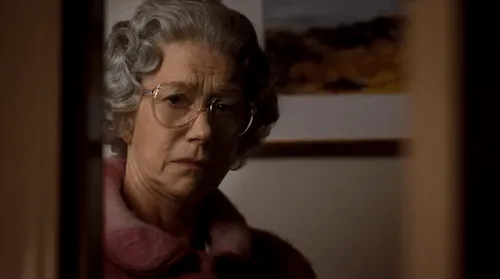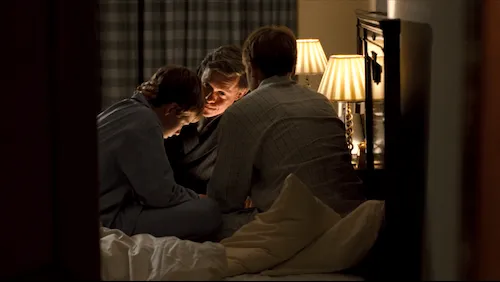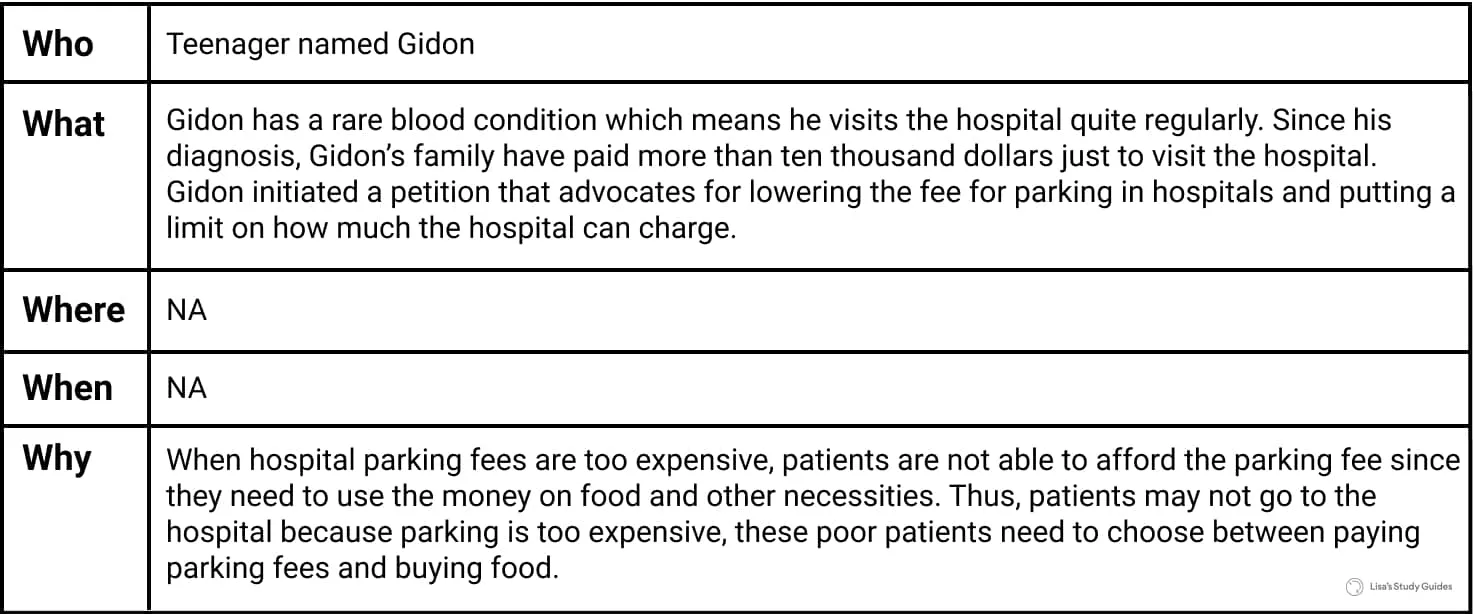Introduction and Key Themes of Reckoning and The Namesake
Families. Love them or hate them, everybody has a family in some shape or form.
Lahiri’s novel The Namesake and Szubanski’s memoir Reckoning both explore just how complex family dynamics can be. In particular, both texts take an intergenerational approach, which means that they look at how children might struggle to understand their parents’ psyches, and vice versa. They also look at how these struggles can play out into adulthood and throughout the course of one’s life in complicated and poignant ways.
And of course, it gets trickier from there: Lahiri and Szubanski tell the stories of families, yes, but they also tell stories of migration, trauma, and heritage. In both texts, these ideas colour the experiences of the central families and are thus just as crucial for our analysis. Let’s go over the key characters of each text first, before having a closer look at how they compare on each of these themes. In particular, we’ll be going through snapshots of scenes from both texts and comparing what they have to say about these themes.
Characters in Reckoning and The Namesake
The Namesake
Lahiri’s novel revolves around the fictional Ganguli family: Ashima and Ashoke have two children, Sonia and Gogol, the latter of whom is the protagonist. The novel spans over three decades, starting from Gogol’s birth shortly after Ashima and Ashoke’s move to America. By the time it finishes, both Gogol and his younger sister have grown up, and Ashoke has passed away. Thus, this story traces the development of this fictional family over time, illustrating how their relationships with one another change over time.
Reckoning
Szubanski’s memoir, on the other hand, is largely about her own family, including her Scottish mother Margaret and her Polish father Zbigniew. In particular, Reckoning is a family history of her dad’s side, who were living in Poland when the Nazis invaded in 1939. There is some exposition of his family, including his parents Jadwiga and Mieczyslaw, his sister Danuta, and her family as well.
Zbigniew would eventually fight as an assassin the Polish resistance, and Reckoning reflects on how that impacted and shaped his relationship with Magda. The memoir is described to be “as much a biography of her father as it is about her.”
In the process, we learn about his migration, moving to Scotland after the war (where he met Margaret), then to England, then to Australia, with Magda their youngest child aged 5. The memoir covers her life from there onwards, including a journey back to Europe to reconnect with the rest of her family.
Themes in Reckoning and The Namesake
At LSG, we use the CONVERGENT and DIVERGENT strategy to help us easily find points of similarity and difference. This is particularly important when it comes to essay writing, because you want to know that you're coming up with unique comparative points (compared to the rest of the Victorian cohort!). I don't discuss this strategy in detail here, but if you're interested, check out my How To Write A Killer Comparative ebook. I use this strategy throughout my discussion of themes below and techniques in the next section.
Family in Reckoning and The Namesake
Evidently, this theme largely underpins the stories of both texts. In particular, The Namesake and Reckoning both show that relationships between family members—whether that be parents, children or siblings—can be really complicated.
Let’s start with The Namesake. Motifs of parenthood and marriage are evident front and centre right from the novel’s get go, as a pregnant Ashima reflects on her life as it stands in 1968. When Gogol is born, his parents’ love for him is also evident: “Ashoke has never seen a more perfect thing.” At the same time, while Ashima is starting to see “pieces of her family in [Gogol’s] face,” her own grandmother is passing away—it’s thus important to remember that parenthood runs both ways (this’ll be important for both texts).
In any case, Ashima struggles with the first few years of parenthood - despite settling into a schedule, she finds herself “despondent” when Gogol begins nursery school. However, she grows accustomed to it in time, making “forays out of the apartment” and settling into some semblance of a routine to keep herself somewhat occupied.
Parenthood isn’t really shown to get any easier though—at his 14th birthday, we see a somewhat awkward exchange between Ashoke and Gogol, now “nearly as tall” as his father. What Ashoke thinks is a nice gift actually sets off a decades-long identity crisis for Gogol regarding his name: “from the little that he knows about Russian writers, it dismays him that his parents chose the weirdest namesake.”
This scene demonstrates how there can be miscommunications between parents and children that make it difficult for them to understand each other. Without explaining his name to his son, Gogol and Ashoke are unable to truly connect; Gogol is annoyed if anything, answering his father “a bit impatiently”. Parents and children may want to understand each other better, but this is evidently not always possible. The consequences of this can often span over years, with Gogol changing his name to Nikhil and training himself to “ignore his parents, to tune out their concerns and pleas” once he goes to college.
Still, familial love perseveres over time, though it sometimes shifts and changes along the way. With Gogol and Sonia both grown up, Ashima reflects on the separate lives they now lead, noting that she “must be willing to accept” her “children’s independence”, and her son’s partner Maxine despite her misgivings. Culture also plays a role here, which we will explore more in the next section. However, what is evoked in this passage (near the start of chapter 7) is that parents have their child’s best interests in mind. Indeed, similar themes flow through both texts.
That said, familial love can be harder to see in Reckoning—in particular, Magda’s father is characterised throughout the memoir as emotionally distant to the point of cruelty. When she first learns of the Holocaust, she finds Zbigniew’s “lack of feeling…monstrous.” She doesn’t understand how he can be so detached from the war having lived “right in the centre of it.” She also doesn’t understand why he yearns more than anything to escape that period of his life.
The texts are similar in that both of them illustrate how parents and children often struggle with barriers in communication despite their love for each other. In particular, children may not always understand their parents’ experiences from before they were born, or how those experiences affect them in the present.
It’s not all bad though—love perseveres, and sometimes parents can surprise you. When Magda finally comes out to her parents, their response is generally quite receptive, and her father is perhaps uncharacteristically touching in this scene:
“Whatever his misgivings were he didn’t dwell on them and he never let the come between us. As I was about to leave they both put their arms around me. ‘We love you,’ they said.”
Trauma in Reckoning and The Namesake
Additionally, both texts deal with parent-child relationships that are affected by experiences of trauma that parents attempt to suppress.
In The Namesake, it’s largely Ashoke’s brush with death that jars his world view, to the point where he names Gogol after the author whose book saved his life after his accident. However, because he doesn’t process his trauma or tell Gogol the story, it leads to a gap in understanding that compromises some elements of their relationship.
These themes are more strongly present in Reckoning, where Zbigniew’s experiences in the war shape many of his opinions and attitudes, as well as his approach to parenting. Tennis, for example, becomes a vehicle for him to teach Magda about winning and losing, “never once let[ting Magda] win.” They have a similarly clinical experience with hunting, where Zbigniew “los[es] patience” with Magda for mourning the death of a rabbit.
Correctly, though retrospectively, Magda hypothesises that this came from a need to “prove himself” after the war ended, and to “discharge the pent-up killer energy inside him.” Even though she would only understand this in time, it didn’t change how her father’s trauma shaped her childhood in ways that she couldn’t have understood at the time.
Reckoning also shows that trauma can be intergenerational, or as Magda puts it “passed on genetically.” She discovers that her maternal grandfather Luke lived through the Irish famine, and watched ten of his siblings die of poverty, causing her to wonder about the “gift of [her] Irish inheritance” that was left on her psyche.
What’s worth remembering here is that it isn’t just the fathers who bury traumatic events from their past (surprising, I know). When Magda’s mother slaps her for the first time, it is because Magda repeats one of her own deepest regrets, soiling a dress made to visit their respective fathers in hospital: “I understand now, of course, that it was herself she was slapping.”
So, while it is true in both texts that traumatic memories impact how parents relate to their children, Reckoning is a deeper and broader exploration of intergenerational trauma. In particular, Magda not only looks at her relationship with her parents, but also her parents’ relationship with theirs.
Migration & Heritage in Reckoning and The Namesake
This is the final piece of the puzzle in terms of major themes and how they fit together. With how characters relate to culture and heritage, we also see both texts evince some rich, intergenerational differences.
In The Namesake, there’s a marked cultural schism between Gogol and his parents. Gogol is desperate to escape his ethnicity, and his status as a second-generation migrant means he is well-assimilated into American culture—he wears his shoes in the house, addresses his parents in English, and dresses like an American. He is also comfortable dating American people, feeling “effortlessly incorporated” into Maxine’s family and daily life. On the other hand, Ashima is demonstrated to struggle more with the move, describing it as a “lifelong pregnancy”, a burden that people treat with “pity and respect.” There are ties to other themes here as well—for example Ashima’s homesickness is sharpened by the fact that she is separated from her family, in particular her parents. It also means that she becomes a part of the life from which Gogol is so desperate to escape.
In Reckoning however, this generational gap is reversed. It is Zbignew who yearns to escape his home culture, while Magda desperately wishes to understand her father: “while I was racing backwards towards my Polishness, my father was rushing in the other direction, assimilating at a rate of knots.” Though this is reversed, there are still ties into other themes: intergenerational misunderstandings for instance are perpetuated by their differing stances on migration. Trauma is also relevant, as Zbigniew is trying to escape it, while Magda is simply working towards understanding her father.
Put this way, we can understand how familial relationships can be complicated by migration, trauma, and the different attitudes it can engender.
Conclusion
Reckoning and The Namesake are two texts that explore many similar themes—family, migration, trauma, heritage, identity—over the span of decades. I would probably argue that family is the central theme that grounds many of the others; it shapes the identity of children—migrant children—and brings out traumatic memories in spite of your best efforts to suppress them.
Hopefully, this gives you a good overview of the themes across these two texts, how they fit together, and how they are similar or different. Don’t forget that themes can overlap and intersect, as is often the case here.
Reckoning and The Namesake Essay Prompt Breakdown
The topic draws on two quotes:
“But in the meantime I had been given a great gift—my parents’ unconditional love.” (Reckoning)
“‘Don’t worry,’ his father says. ‘To me and your mother you will never be anyone but Gogol.’” (The Namesake)
And the prompt itself is:
Compare what the two texts suggest about parent-child relationships.
Topics for comparative essays are usually pretty broad, but let’s pull out some key words and questions that the topic and the quotes seem to raise.
The one that stands out the most to me is this idea of ‘unconditional love’. For parents, this usually means they’ll love and support their child no matter what mistakes or choices they make. In the context of Reckoning, this was brought up in terms of Magda’s sexuality, which is neither a mistake nor a choice, but consider how it permeates through the memoir, and how it’s always been there in some of her parents’ thoughts, words and actions. And how might it compare with The Namesake?
The other quote is a little more interesting, in particular the ‘to me and your mother’ bit, which I think complicates the idea of unconditional love. Is love still unconditional if parents define who you are and who you will “never be”? I think what’s implied here is that you want to include some discussion of parental expectations, which is another can of worms. It might include things like how parents want you to behave, what career choices they might want you to make, whether or not they approve of your friends or romantic partners.
Now, let’s dive into a possible plan to tackle a topic like this...
Paragraph One
So firstly, let's establish that parent-child relationships are often laden with expectations.
It may not be the obvious example, but Ashima’s family had undoubtedly expected her to marry Ashoke, a PhD student in Boston at the time, as conveyed through “her mother’s salesmanship”. We see this mirrored in the life of Moushumi as well, whose parents orchestrated a “series of unsuccessful schemes” to see her married in her adolescence. Gogol experiences expectations that aren’t all so intentional—while his parents don’t mean him any harm by naming him Gogol, he feels trapped by the name, “always hated it” in fact. Still, his parents are markedly “disappointedly” when he chooses Columbia over MIT, and are “distressed” by his low income while he’s at college.
Szubanski’s parents have somewhat similar expectations in this regard: “the ranks of the second generation are full of doctors and lawyers and professionals.” She felt that “all of the family’s educational hopes rested on [her].”
These examples mightn’t be the most obvious, but they’re effective for making this point, and don’t need too much explanation to tie it into the prompt.
Paragraph Two
Let’s keep this in mind for our second paragraph: trauma can be passed on intergenerationally through how parents treat their children, and this can bring its own set of expectations as well.
Gogol feels trapped by his name, but it is a result of his father’s traumatic experiences. What Ashoke might not realise is that this has caused Gogol even more distress of his own. This is probably stronger in Reckoning, where Peter’s emotional capacity is compromised as a result of war. When Magda looks through the book filled with pictures of decomposing bodies and feels uneasy, her father’s comment, “don’t be silly, it’s just a picture,” makes her feel ashamed of herself for her “stupidity and weakness”. So, parental expectations can be distorted by their traumatic experiences, which only serves to pass that trauma on.
Paragraph Three
To conclude, let’s flip this around to look at how children respond to their parents: in both texts, there’s a sense that being able to confront these expectations and memories from the past helps children to synthesise their own identity and move forward in their own lives.
In The Namesake, Gogol only reads The Overcoat after his father dies, in fact saving it from a box that was about to be donated, “destined to disappear from his life altogether.” The novel ends here, which could represent that he is able to move into a new phase of his life only after having grappled with this one. Szubanski’s pilgrimage back to Poland and Ireland come from similar desires to better understand her parents. She “wondered if Europe might provide the sense of home [she] craved” particularly given her father’s desire to never look back at his traumatic past there.
I think the bottom line is that parent-child relationships are already complex, and can be further complicated by a number of factors. Still, it’s up to children to grapple with the burden of expectations, and to forge our own path forward from there.





.png)











.jpg)